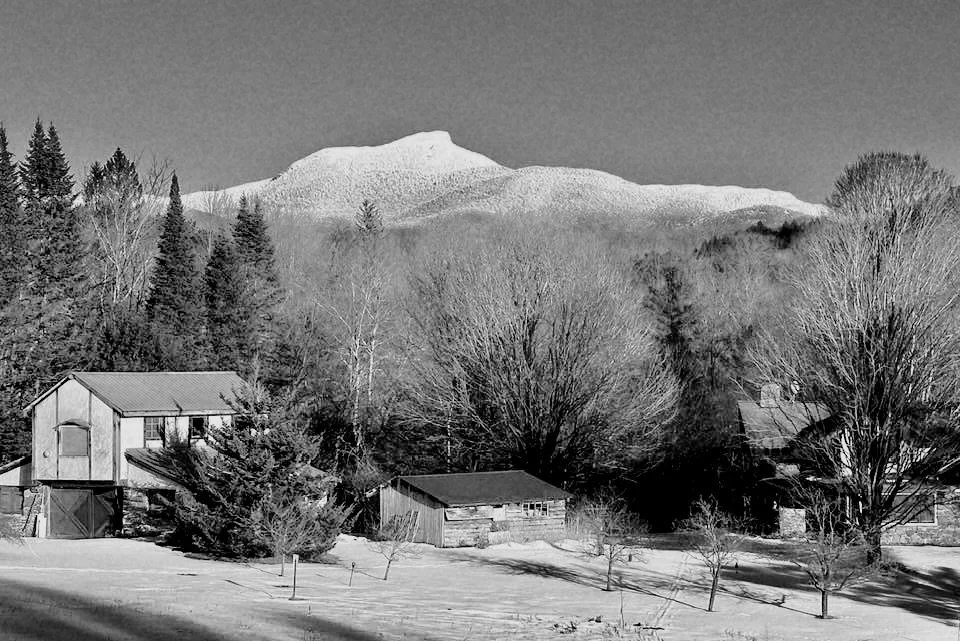fURTHER reading about Our Generation
Here’s some of what we have seen recently that might be of particular interest to our generation. (Apologies for any pay walls.) Send us what you have seen at WritingAboutOurGeneration@gmail.com.
Why Aging Experts Are Obsessed With ‘Health Span’, Dana G. Smith, New York Times, Dec. 3 2024
What I Wish Someone Had Told Me 30 Years Ago, Jim VandeHei, The Atlantic, April 30, 2024
Inside your body, aging unfolds at remarkably different rates, Gretchen Reynolds, Washington Post, Nov. 25, 2024
10 Over-the-Counter Medications That Can Become Risky After 50, Maggie Aime, AARP, Sept. 6, 2025
Getting Older? It Might Be Time to Hire a Trainer., Alyssa Ages, New York Times, Oct. 19, 2024
What happens when a 79-year-old beginner stares down a piano recital, David Bonior, Washington Post, July 8, 2024
How to see the humanity in anyone, Scott Shigeoka, Psyche, Dec. 15, 2024
The warmth of a cold winter
As 2024 disappeared and the winter winds were blowing into the Green Mountain State, many of my friends packed their bags with swimsuits, shorts, t-shirts, and SPF 15, to spend the winter under a perpetually shining sun.
But not me.
I am staying, like I always do, right here in the north country. Do I envy those who find respite from the northeastern weather that can cut through you like a cold knife through hot pecan pie? Not one bit!
I honor their decision, but for me there is nothing like a winter in Vermont. Winter up north is a time for reflection, transformation, introspection and quiet to process one’s life. …
Never Trump … Still
It may be premature, but it’s possible that conservative New York Times columnist Bret Stephens may be starting to choke on his recent semi-conciliatory words about Donald Trump.
After all, how can a sentient being think anything but the worst after the recent shitstorm of venality and incompetence over the debt ceiling—set against the astounding array of fools and scoundrels with which the once-and-future president has surrounded himself for his next time in the sandbox.
In his own column recently, Stephens had this to say about Donald Trump:
“Who, and what, is Trump? He’s a man and the symbol of a movement. The man is crass but charismatic, ignorant but intuitive, dishonest but authentic. The movement is patriotic—and angry …”
Stephens went on to say that Never-Trumpers (he included himself) simply missed the surging waves of discontent among all voters this year, and joined liberals and moderates (like me) in a cavalcade of cluelessness:
“What ordinary people really cared about this year were the high cost of living and the chaos at the border. Why did Trump—so often deprecated by his critics as a fortunate fool—understand this so well while we fecklessly carried on about the soul of the nation?”
First, let me say that it’s not a bad thing to worry about the nation’s soul, just that maybe this season was not the time to make such a thing of it (the price of eggs, you know.) But I would add to Stephens’ sobriquet “fortunate fool” the Italian word “furbo.” …
2024, we hardly knew ye
It was a year to remember, and I wish I could. I know I put it somewhere. And I’m pretty sure I had it when I walked into the room, if I could just remember which room I walked into.
Then again, it’s possible I left it in the car.
While I may not remember all of 2024 precisely, I do recall My Monthly Top 12 Accomplishments for the year.
Here they are:
January: I changed all my computer passwords. To provide additional security and prevent potential identity theft, I also changed my identity and became seven inches taller and the Nobel Peace Prize winner. …
Welcoming a new year
Do you still go out for New Year’s Eve?
We don’t, not anymore. For a number of reasons.
Let’s be honest: as we have gotten older, it gets harder and harder to stay up late. By midnight, when the ball comes down, we’re generally long gone. Sometimes making it to the end of the 10 o'clock news feels like a real accomplishment.
Most of the people we know who are about the same age feel the same—they have left New Year’s Eve celebrations to those young enough to watch Saturday Night Live live, not several days later, at a more reasonable time, with YouTube videos. They’ve traded in the late-night festivities for the more humane New Year’s Day brunches and open houses.
Plus, even if we weren’t needing to go to bed much earlier, we clearly no longer can party until 3 or 4 a.m., like some of us did back in the day. In fact, it is now harder to party at all, particularly when you can’t hear what the other partygoers are saying because the music is too damn loud and too many other people are talking at the same time and you can’t remember for the life of you the name of the partygoer you are trying to talk with. …
Jimmy Carter: an appreciation
He was a hard man to like, yet an easy man to respect.
He did not suffer fools, confident as he was in his own keen intelligence, not to mention comfortable with his disdain for the political give-and-take that used to fuel political Washington.
The shorthand summary of his one-term presidency, from 1977-1981, was that it was an overall failure because of his stiff-necked refusal to schmooze and haggle with Congress. This glib (and wrong) assessment gains traction because folks could in the same breath heap praise on Jimmy Carter’s post-White House life: public policy wonk (and often scold), humanitarian whose efforts worldwide seemed to equal those of Muhammad Ali, and of course tireless worker for Habitat for Humanity.
[Think about it: what former president from our lifetime can you imagine not just clearing brush on his ranch a la Ronald Reagan, but actually putting on—and using—a tool belt day after day to build homes for the poor?]
The sumbitch may have been prickly, but, dammit, he was a mensch. Not to mention a Nobel laureate. …
Some of the best “Writing About our generation”
It’s almost the end of the year, which means Writing About Our Generation is almost a year old. Which means, it’s time to look back, take stock and see what we’ve done.
But as we enjoy a small break from the every-day publishing grind and gear up for year two of Writing About Our Generation, here are some of our favorite posts from this year, stuff that made us think or laugh or re-evaluate. If you’re new to the site, or are as forgetful as we often are, consider this a sort of “best of” list, or a primer on Writing About Our Generation, ’24.
It was difficult to choose. We prize and are grateful for everything we’ve put up. But here are some of our greatest hits.
What’s Wonderful about this Life
It’s A Wonderful Life premiered in December 1946 and nearly eight decades of Christmases later, we keep watching George Bailey peer over a bridge railing, his head filled with a dark certainty that the world would be better if he had never been born. Clarence, an angel, disabuses Bailey of his dark notions by revealing a dystopian counter-factual: a world without him.
Bailey’s impact is apparent. He has built half the homes in Bedford Falls, helping to thwart the heartless Henry Potter.
For many of us who aren’t George Bailey or Jonas Salk, the impact is harder to measure. Robert Putnam was recently interviewed by the New York Times about his life’s work, including the 1995 book, Bowling Alone: America's Declining Social Capital. He told The Times that over the past quarter century, the problem he outlined in 1995—the weakening of communities and political engagement—has gotten worse. . . .
A WAL-MART CHRISTMAS EVE
I finally made my choice between the several 20-items-or-less lines, calculating that the young, slender checker would be quicker than the older, weary looking woman running the register to her left. And, as usual, within seconds, Young-and-Slender stopped dead to call for a price check.
It was Christmas Eve day at Wal-Mart. The parallel checkout lines were close together, and several people had already filled in behind me. Turning my cart around would be awkward.
So, summoning some gratefully arrived seasonal good cheer and patience, I began scanning various magazine covers featuring apparent celebrities I’d never heard of and Taylor Swift, of whom I just had—and impressively so—in a segment on Sixty Minutes; quite a remarkable young woman.
As expected, nobody responded to Young-and-Slender’s price check request, and while our line remained December frozen, customers to our right and left crept forward at mission food line pace, but moving nonetheless.
As I, in my way, contemplated the nature of things—holiday traditions and sentiment, celebrity culture, mass shootings, games of fiscal-cliff chicken, Wal-Mart seediness (as well as my own), and the ineffable Mystery from which this and the ten thousand things emanate … well, not exactly emanate … but…oh well, it is ineffable, after all, a male voice behind me said:
“Stay over there on that side. I’m over here.” …
Have yourself a techie little christmas
Twas the night before Christmas, when
all through the town
TikTok was quiet even Bluesky was down.
Stockings were hung by the plasma display
In hopes Elon Musk wouldn’t
take them away.
The children were nestled, all
snug and secure,
While Big Data strip-mined
their free FICO score. …
Heather Cox Richardson on: The Trump and Musk Show
We are with one of our children on the island of St. Barths, where I should be thinking about Emerson’s wonderful line about warm weather: "Man in summer is man intensated.”
I should be noting the casualness with which women are excluded from such aperçus. I should be trying to figure out why spellcheck doesn’t recognize “insensated.” And I should be deciding if I ought to aim for “insensated,” during this Caribbean idyll or whether merely “laid back” will do.
Instead, I’m noting that most of the tourists here are younger and richer than I. And I’m thinking (our fate for the next four years?) about Trump/Musk.
The latter—the thinking not the election—is in large part Heather Cox Richardson’s fault.
I know many of you subscribe to her letters and Substack. (If not, that can be rectified (for free) here. We try to keep excerpts from articles that have appeared elsewhere to a minimum. And she is not even a member of our age cohort.
But she can make our situation—our ridiculous and frightening post-election situation—so damn clear. . . .
Health Care Doesn’t have to be this way
There’s been a lot of conversation recently, in the wake of the murder of the United Healthcare CEO, about the failures of the American healthcare system, and particularly the inadequacies of American health insurance.
For some, the alleged murderer became a kind of folk hero, a Robin Hood pushed to the limit, an avenging angel fighting health insurance’s myriad injustices. For many, it simply uncorked a deep well of pent-up consumer frustration. For me, it provided an occasion not only to think about how much better health care in America could be and should be, but how different it was when we lived in France. . . .
“100 Most Iconic Technologies”
No this is not another WritingAboutOurGeneration.com list. For one thing, we are not much enamored with the word “iconic.”
This list was conjured up—with the help, apparently, of dozens of experts—by the New York Times’ consistently witty, wise and enlightening technology podcast: Hard Fork, hosted by Kevin Roose and Casey Newton.
I am quite interested in the history of technology. I once contemplated a book on the subject: beginning with stone tools, agriculture and the wheel.
So I thought it might be interesting to share some thoughts on Hard Fork’s rankings—and maybe to get your thoughts. And at some point this website may indeed have something of its own to say about the most important technological developments of our lifetimes.
What follows are the top 25 of Hard Fork’s “100 Most Iconic Technologies”—ever. And then my thoughts on their list . . .
Keith Abides
My friend and colleague Mitch and I used to play this awfully morbid game. We would try to figure out which celebrity death would make the front page of the New York Times, back when there was pretty much just the static, print version of the paper and not the endlessly mutating digital variety.
Whose death was important enough to qualify for the imprimatur of the nation’s most important news source? Who would make it above the fold, the top half of the paper, the death being considered major news, up there with earthquakes and wars and political shenanigans?
And whose death would instead be buried, so to speak, on page 26, along with all the other obits of minor novelists and respected but forgotten scientists and others who had one Warholian moment of fame?
I was just recently reminded of this morbid game when I came across the fact that Keith Richards—yes, that Keith Richards—has his 81st birthday this week. . . .
Sharing What We know
Seventy years ago this January, I walked into my first class, at elementary school, and had my first experience interacting with a teacher. Next month, I will greet students walking into my class, experiencing my first day teaching a class of my own.
A lot has happened between those two days.
Next month marks a memorable milestone for me. I will, for the first time, formally take on the title of “professor” and jump into a semester of teaching a graduate school class focusing on urban development. It’s a topic I have had directly in front of me for my entire career, as a practitioner.
But now I’ll be dealing with it in a teaching mode. …
The Emergency Room, But Not an Emergency
It’s the emergency room, but the situation does not feel all that scary.
My wife has been suffering with a respiratory something. Our “primary-care physician” wants to make sure it isn’t a bacterial something. If he were to do the blood test in his office, we would have to wait a few days for the lab to send the results. So, we head to the emergency room—at 9:30 a.m. It is on the other side of town.
I am not entirely a stranger to emergency rooms—having had a broken bone set or an unfamiliar symptom checked out upon occasion; having joined my aged mom there a few useless times after an overly jittery aide had called an ambulance.
This time in the ER my wife, despite her honest account of some very non-acute symptoms, is gifted, quickly, with a doctor, the blood work and a chest X-ray . (Friend Neil suggests that the surest way to get prompt service in an emergency room is to report “severe chest pains.”) . . .
One Year out
It’s been just about a year.
During the year, these last 12 months, I’ve traveled abroad and explored archeological ruins. I’ve run a 5K, hiked to the top of a (small) mountain and helped launch and kept functioning a new website (this one, in fact).
I’ve been interviewed on podcasts and written about no longer caring much about baseball. I’ve eaten at nice restaurants and some not so nice, where I couldn’t hear much of anything because the restaurant was so damn noisy. I’ve read some wonderful books and some not-so-memorable ones that, in fact, I can’t remember much about.
I’ve lived through a despairingly awful election and the despondency that came afterwards.
I’ve celebrated another birthday, another wedding anniversary, the birthdays of my wife and kids and various holidays. I’ve given thanks on Thanksgiving, really given thanks.
That is, all in all, a pretty ordinary year. Yet none of it was a given, because just about a year ago, I almost died. . . .
The Joy of Being Underparented
In a funny coincidence, a week after visiting my one-year-old grandniece, I read Darby Saxbe’s article “People Should Ignore Their Children More Often” in the New York Times.
I had spent the weekend watching my niece attend to her daughter’s every whimper. My niece was exhausted and stretched thin. I gently encouraged her to let the baby be for a bit—she’s perfectly safe in the 10-foot-by-10-foot playpen! But my niece wasn’t having any of that.
Saxbe’s article talks about how overwhelmed and stressed today’s parents are and makes the point that children in hunter-gatherer societies were probably often unsupervised, and when they were with their parents it was often when their parents were doing adult things—chores and such. Children in these communities got the gift of being bored, as well as the opportunity to observe adults doing grown-up tasks.
Saxbe suggests trying to approximate this approach to parenting and calls it “mindful underparenting.” . . .
“The Great Upheaval”
You might want to check out this from Axios’ Jim VandeHei and Mike Allen, who are experienced at this "spot-the-big-trends" big think. It includes comments from former Google chair Eric Schmidt and the usually wise, Ian Bremmer.
Governance, media, business and global geopolitics are all being reordered at breakneck speed — all simultaneously.
It's the Great Upheaval, Jim VandeHei and Mike Allen write in a "Behind the Curtain" column.
Why it matters: We're witnessing more change ... across more parts of life ... at more speed ... than ever before. . . .
Gobbled Gospel
“In wildness is the preservation of the world” — H.D. Thoreau
THERE, LOOK! ...…
Two days before Thanksgiving, marching along the residential sidewalk, a troop of wild turkeys, their dusky browns and grays merging with Autumn’s smudged palette. Heads down, one fowl in lead, two following abreast, then three, then three more, with one trailing—moving without pause or hitch down the sidewalk, their purpose known only to guiding Nature. Perhaps some biological imperative version of a promised land.
Seeing that humble, determined band yanks me from my Slough of Despond—that ever engulfing, oozing swamp of worldly pain, suffering, and death—political, geopolitical, economic, sociological, psychological, climatological—though at end, nearly all anthropological—the humanity authored catalogue of catastrophic present and impending calamities. . . .





















